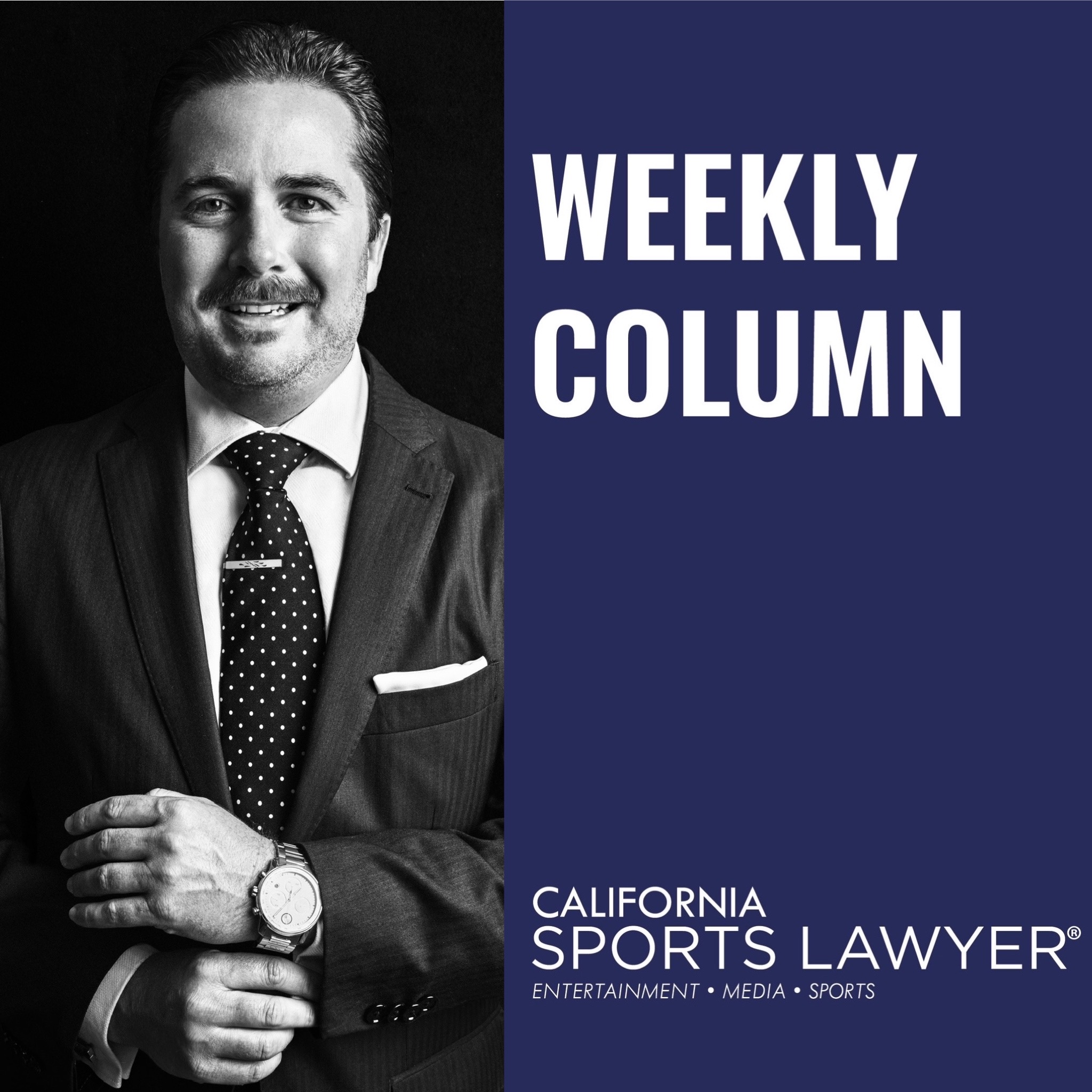California Sports Lawyer® CEO, Founder, and Managing Attorney Jeremy M. Evans column about the pitfalls for athletes when endorsing products and services.
You can read the full column below. (Past columns can be found, here).
~
In an era of name, image, and likeness (“NIL”) there is a push towards endorsing products and services and receiving sponsorship dollars. However, there are limitations to be concerned about. Those limitations are with truth in advertising and issues in due diligence when endorsing products.
“Truth in advertising” refers to the legal and ethical principle that advertisements must be truthful, honest, and not misleading. It is enforced by the Federal Trade Commission (“FTC”) in the United States and by authorized state agencies as well. Advertisements must be truthful and cannot be unfair to the point that is causes or is likely to cause substantial consumer injury that is not reasonably avoidable and is not outweighed by the benefits, and is not deceptive. However, claims against advertisers or endorsers like athletes must be evidence-based. The platform can be all forms of marketing on television, streaming, radio, print, podcasting, and social media, etc. Common violations that are investigated and prosecuted are false or unsubstantiated health claims, misleading price like bait-and-switch tactics, hidden fees in fine print, and/or fake reviews or endorsements.
In the current lawsuit against sports legends and superstars Tom Brady, Steph Curry, and Shohei Ohtani, while many of the claims were found baseless, several of the claims have proceeded beyond preliminary judgment with regard to the endorsement of the FTX cryptocurrency exchange that collapsed in 2022. The lower court judge held that while the paid athlete endorsers promotion of FTX was “uninformed, negligent, or even reckless,” there was no plausible claim they were aware of fraud. The problem for the athlete endorsers is that in some states like Florida and Oklahoma the promotion of unregistered securities is a strict liability offense, meaning there is no mental state required to be found liable for the offense. One legal question going forward is the distinction between an exchange versus stock for a company or cryptocurrency. FTX is neither a stock or cryptocurrency. The equivalent would be like filing suit against NASDAQ, Wall Street, or the S&P.
Practically, athletes must now vet not only the company they are being paid to endorse, but also whether the product or service being endorsed could be subject to securities regulation. This means due diligence is very important. Courts may consider whether an athlete or their team performed adequate due diligence before entering an endorsement deal. Negligent or reckless promotion, even without fraudulent intent, may expose athletes to litigation—especially if the product fails or harms consumers. As FTX failed as a cryptocurrency exchange where customers had invested, there is some harm, but making the causal connection will be important in proving the case. Courts will also consider the sophistication of the investors and how well the industry, product, or service is understood.
It is of note that athletes are considered “trusted figure” status for endorsements and advertisements, which makes them vulnerable to lawsuits if fans or followers suffer losses due to their endorsements. An additional issue are the blurred lines between endorsement and investment meaning that athletes are subjecting themselves to further issues when they get paid through investment or company ownership. It is one thing to endorse a product or service for a payment versus being invested in the company an athlete endorses. Endorsing and investing creates dual legal exposure.
Athlete endorsers also have to be concerned about reputational damage when a product or service goes bad. Marketability is important for long term viability to promote products and services does the road. Athletes also have disclosure requirements when endorsing products pursuant to FTC and Securities and Exchange Commission (“SEC”) rules. Legal precedent is now entering into pioneering territory, establishing whether athletes can be held to similar standards as corporate promoters or financial advisors. Any ruling or law could redefine how sports figures participate in marketing nontraditional or speculative products.
When signing marketing deals, an athlete, whether in college or professional, must research and consider the implications of endorsing a product or service. An NIL deal is not as simply accepting money, product, or ownership in a product or service. With accepting something of value comes responsibility and advertising oversight regulations.
~
About Jeremy M. Evans:
Jeremy M. Evans is the Chief Entrepreneur Officer, Founder & Managing Attorney at California Sports Lawyer®, representing entertainment, media, and sports clients in contractual, intellectual property, and dealmaking matters. Evans is an award-winning attorney and industry leader based in Los Angeles and Newport Beach, California. He can be reached at Jeremy@CSLlegal.com. www.CSLlegal.com.
Copyright © 2025. California Sports Lawyer®. All Rights Reserved.





